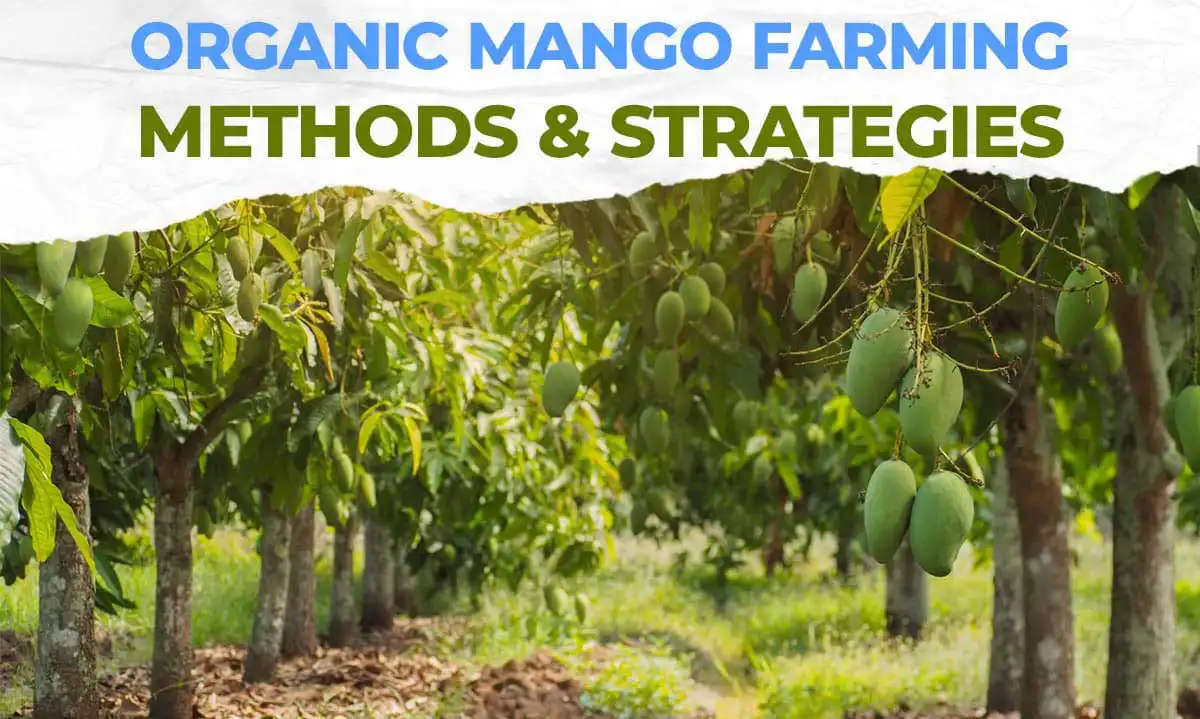Organic Mango Farming: Methods and Strategies

Organic mango farming is a sustainable and environmentally friendly approach to cultivating mango trees. It involves the use of natural methods and practices that prioritize soil health, biodiversity, and the well-being of both the mango trees and the ecosystem in which they grow.
In organic mango farming, synthetic chemical fertilizers, pesticides, herbicides, and genetically modified organisms (GMOs) are avoided. Instead, organic farmers rely on organic matter, compost, and natural fertilizers to enrich the soil and provide essential nutrients to the mango trees. This promotes the growth of strong, healthy trees and enhances the nutritional value of the fruits.
Methods and Strategies
Organic mango farming employs a range of methods and strategies to cultivate mango trees without the use of synthetic chemicals or genetically modified organisms. These methods prioritize soil health, biodiversity, and sustainable practices. Here are some key methods and strategies used in organic mango farming:
Soil management:
Organic mango farmers focus on building and maintaining healthy soil. They incorporate organic matter such as compost, manure, or green manure cover crops to improve soil fertility, structure, and water-holding capacity. Regular soil testing helps ensure that essential nutrients are present in the soil and allows farmers to make informed decisions about organic amendments.
Organic fertilizers:
Instead of synthetic fertilizers, organic mango farmers use natural and organic fertilizers to provide essential nutrients to the mango trees. This can include compost, well-rotted manure, organic plant-based fertilizers, and biofertilizers. These organic inputs gradually release nutrients, promoting healthy tree growth and fruit development.
Integrated pest management (IPM):
Organic mango farmers implement IPM strategies to manage pests and diseases. This approach involves a combination of preventive measures, monitoring, and biological, mechanical, and cultural controls. Farmers encourage beneficial insects and natural predators to keep pest populations in check and use physical barriers or traps when necessary. Organic-approved pest control products derived from natural substances may be used as a last resort.
Weed management:
Organic mango farmers employ various weed control methods, including mulching, hand weeding, and the use of organic herbicides derived from natural sources. Mulching with organic materials like straw or wood chips helps suppress weeds, conserve soil moisture, and regulate temperature. Regular weeding by hand or using appropriate tools is necessary to prevent weeds from competing with the mango trees for resources.
Water management:
Water conservation is a critical aspect of organic mango farming. Efficient irrigation methods such as drip irrigation or micro-sprinklers are used to deliver water directly to the root zone, minimizing water wastage. Monitoring soil moisture levels and adjusting irrigation schedules based on tree needs help to optimize water usage. Mulching also plays a role in water retention by reducing evaporation.
Pruning and training:
Pruning is essential for maintaining the shape, size, and health of mango trees. Organic farmers prune to remove diseased or damaged branches, improve air circulation, and allow sunlight to penetrate the canopy. Proper training and pruning techniques help manage tree height, enhance fruit production, and facilitate harvesting.
Crop rotation and diversification:
Organic mango farmers practice crop rotation to break pest and disease cycles and maintain soil fertility. Alternating mango cultivation with other crops helps prevent the buildup of specific pests or diseases. Additionally, intercropping with compatible plants can enhance biodiversity, attract beneficial insects, and optimize land use.
Organic certification:
Organic mango farmers may choose to pursue organic certification to demonstrate their adherence to organic farming standards. Certification processes vary by region, but they generally involve third-party verification of organic practices, including documentation of inputs used, record-keeping, and compliance with organic regulations. These methods and strategies are aimed at promoting the health of mango trees, conserving natural resources, and fostering a sustainable farming system. By embracing organic practices, mango farmers contribute to environmental preservation, produce high-quality mangoes, and support consumer demand for organic and sustainable agricultural products.
Latest Blog
JOIN OUR COMMUNITY !
Stay connected with Getfarms! Follow us on social media for the latest updates, exclusive offers, and a glimpse into the world of farmhouse living. Join our community today














